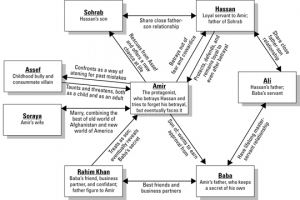AS 90854 Reading Record Sheet – Draft Ideas 2018 ‘Highly Recommended’
Student Name: Christina Lamb
Text Title: The Intouchables
Author/Director: Olivier Nakache and Eric Toledano
Text Type (circle): Visual text
Date Finished: 24th May
Based in Paris, a rich man with a disease that requires a live-in caretaker surprisingly hires a young man. Throughout the movie, they develop a close friendship even though they are complete opposites.
One of the two main themes addressed in this visual text is not to judge a book by its cover. Meaning that we shouldn’t judge a person by their looks because there is much more to them than what we see, people often show us what they want us to see they hide the bad and show off the good in most cases. In The Intouchables Philippe didn’t judge Driss by his looks when he first walked in for the interview, instead, he gave him a chance and offered him the job because he knew that Driss has more potential than what he could see in himself. Same goes for Driss, he didn’t see Philippe as an opportunity to improve the resume or a way to get easy money, instead, he saw that he needed a friend and that’s what he became… Philippe’s friend. The second theme is the things that can come out of risk-taking. For example, when Driss first walked in for the interview he didn’t sit down he came just to get the signature and intended on leaving and not getting the job, but Phillipe took a risk knowing that Driss had no experiences in caregiving after a handicapped person and wasn’t successful at his previous three jobs. At the end of the movie both of their risk-taking proved the good things that can come out of it, in this case, they formed a lifelong friendship.
This text connects with the rest of the world because it highlights the inequalities in our world. For example, there are scenes in the movie that show Driss’s lifestyle, his neighborhood is very poor and dark, his family is struggling to get food and many people live in the same place which is small, unattained, and rugged. Compared to Phillipe who lives in a huge mansion alone, with his paid caregivers and gardeners etc. These two compared scenes show that there is a race inequality in France as well as other places in the world such as America.
This text teaches us that society is unfair and we all need to stand up for ourselves, it’s a huge world and you’re on your own, you need to do things for you but also help those close to you as much as you can. An example of this is when Philipe’s neighbor kept parking their car in front of his driveway when there was a sign that said no parking. Instead of reporting it to the police again and waiting for action to be taken, Driss took matters into his own hands and went and talked to the neighbor.
This text connects to my viewpoint about not judging a book by its cover, I think that our modern society has become very quick to judge people on their looks especially with things like Instagram and Facebook where we can find out so much about a person before even physically meeting them or talking to them. Personally, I think this is very unhealthy because when you finally meet that person you have already made your mind up about them and it can be hard to change peoples opinions once they are made. The other theme of the text is risk-taking, and I’m totally all for risk-taking! I think it such a good thing for all of us to do every once in a while because you go into this new thing completely clueless and open minded which is really good for us to do and get out of our comfort zones. Becuase these days we are so comfortable in our everyday luxurious lives and most of us don’t take many risks so I think its good to now know whats coming sometimes when you take a leap of faith.
I would definitely recommend his text to others! It such a great movie although it is hard to understand because it is in French and you have to read the subtitles but it is definitely worth it. This movie can you teach you a lot if your open minded, It highlights some important issues in our modern society doing so with some humor. It will also make you appreciate how lucky we are that we have full movement and can do things like ski and play a sport or simply just get into the car alone. As well as for those that have restricted or no movement, things are still possible and this movie shows just that.
